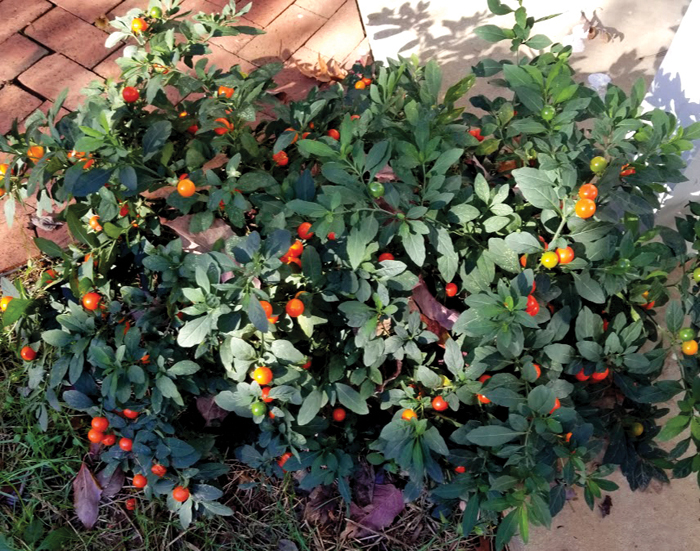Darrell Blackwelder column: Jerusalem cherry
Published 12:00 am Sunday, November 22, 2020

- Jerusalem cherry
There is a plant in our landscape that has a vast display of small, colorful fruit. It has a strange resemblance to a bushy, cherry tomato; however, it is not a tomato but a Jerusalem cherry or Christmas cherry (Solanum pseudocapsicum). It is a 20-year-old heirloom transplanted from a relative’s home in Winston-Salem. The bright red-orange fruit is about the size of a quarter providing colorful fall and winter interest. Jerusalem plants were very popular many years ago as a house plant during the holiday season. The foliage is rather dense and dark green forming a mound loaded with colorful orange fruit. The ornamental pepper is a member of the nightshade (Solonaceae) family which includes potato, eggplant and tobacco. The plant’s name is misleading as the Jerusalem cherry is actually native to Peru and Ecuador. When extreme cold weather occurs, the heavily fruiting plant will lose its leaves and die back as a stem or to the ground. However, this plant rejuvenates itself in the spring growing bigger and lusher each season. References say the plant will survive cold winters on the average of 10 years. The small fruit produce an abundance of pepper-like seed with almost 100% germination. Unfortunately, all parts of the plant and especially the fruit are somewhat toxic. Go to https://plants.ces.ncsu.edu/plants/solanum-pseudocapsicum/ for more detailed information.
Darrell Blackwelder is the retired horticulture agent and director with the North Carolina Cooperative Extension Service in Rowan County. Contact him at deblackw@ncsu.edu.




